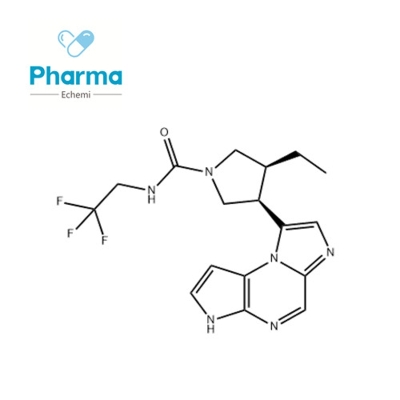-
Categories
-
Pharmaceutical Intermediates
-
Active Pharmaceutical Ingredients
-
Food Additives
- Industrial Coatings
- Agrochemicals
- Dyes and Pigments
- Surfactant
- Flavors and Fragrances
- Chemical Reagents
- Catalyst and Auxiliary
- Natural Products
- Inorganic Chemistry
-
Organic Chemistry
-
Biochemical Engineering
- Analytical Chemistry
-
Cosmetic Ingredient
- Water Treatment Chemical
-
Pharmaceutical Intermediates
Promotion
ECHEMI Mall
Wholesale
Weekly Price
Exhibition
News
-
Trade Service
As a "new" patient with systemic lupus erythematosus, Miss Wang has never known what to pay attention to in her diet, and the doctor suggested that her daily diet should ensure nutrition, and Miss Wang, who loves to eat seafood, asked: "Seafood, shrimp and crab are rich in high protein and very nutritious, can I eat more?" "What is systemic lupus erythematosus?
Systemic lupus erythematosus is an autoimmune connective tissue disease
of unknown etiology that can invade multiple systems throughout the body.
Patients produce a large number of autoantibodies, causing the immune system to attack its own tissues, causing damage to multiple organs and tissues throughout
the body.
As one of the typical clinical symptoms, butterfly erythema is a unique rash of systemic lupus erythematosus, which is of great significance for the diagnosis of the disease, manifested as butterfly-like scars on the bridge of the nose and cheeks on both sides, most of which have no obvious itching sensation, and in severe cases, the patient's body organs
are affected.
In Chinese medicine, this disease is attributed to "warm disease", and it is recorded in the "Jin Kui Zhiluo Lily Fox Confusion Yin and Yang Disease Pulse Evidence": "Yang poison is a disease, the face is red and spotted like brocade lines, sore throat, saliva pus and blood; Yin poison is a disease, his face is blue, his body hurts like a cane, and his throat hurts
.
”
The importance of diet for human health has long been mentioned
in ancient Chinese medicine texts.
"Lingshu Five Tastes" also has the discussion of "liver disease forbidden hardship, heart disease forbidden salt, spleen disease forbidden acid, lung disease forbidden bitterness, kidney disease forbidden sweet", which is enough to show the importance of dietary conditioning!
Not recommended
People with systemic lupus erythematosus eat seafood!
Most patients with systemic lupus erythematosus are highly allergic, and it is best not to eat seafood during the active period of the disease, which is easy to cause allergic reactions in patients, such as itching and skin lesions in patients, thereby inducing systemic lupus erythematosus disease activity or aggravation
.
For patients with systemic lupus erythematosus combined with "lupus nephritis", because their kidneys are damaged, a large intake of protein-rich seafood will burden the patient's kidneys!
In addition to seafood, some warm meats, such as beef, mutton, dog meat, venison, horse meat, donkey meat, etc.
, are not recommended for patients with systemic lupus erythematosus!
Daily dietary contraindications
The daily diet of lupus patients has the following major contraindications:
1 Because patients with lupus nephritis are often treated with hormones, they are more likely to be retained
by sodium and water.
Therefore, salt intake should be limited, and a low-salt diet is required, otherwise edema
will be exacerbated.
2 Long-term application of hormones can easily cause calcium and phosphorus metabolism disorders and bone calcium loss, and osteoporosis
will occur for a long time.
It is recommended that patients eat more calcium-rich foods
in addition to routine calcium supplementation.
3 Patients with systemic lupus erythematosus with swelling and pain in the joints should minimize the intake of beef, lamb and seafood, especially spicy and irritating foods
.
4 Patients with lung infection and interstitial lung lesions can appropriately eat foods that clear the lungs and moisturize the lungs, such as lilies, barley, etc
.
5 Patients with systemic lupus erythematosus with local Raynaud phenomenon as the main manifestation can eat warm foods
appropriately.
6 Patients with lupus nephritis should eat less spinach, strawberries and other foods containing more oxalate, so as not to cause urine crystals and cause kidney damage
.
7 Avoid eating shiitake mushrooms, celery, grass heads (alfalfa, milk vetch) and other foods that can increase light sensitivity; Hot foods such as chili peppers, green peppers, garlic, and green onions should not be eaten
more.
8 patients with systemic lupus erythematosus use hormone therapy for a long time, which will affect the normal secretion of insulin from the pancreas, reduce insulin secretion, and make it easier for patients to have glucose metabolism disorders, severe cases can form diabetes, so for patients with systemic lupus erythematosus, they should pay attention to eating less high-sugar foods and limiting sugar intake
.
Recommended foods
It should be noted that patients with systemic lupus erythematosus should usually pay attention to eating foods rich in calories, protein, vitamins and easy to digest, such as aquatic products, poultry, eggs, vegetables, fruits, etc.
, and avoid eating irritating and greasy foods
.
It is recommended that patients can eat lean pork daily to supplement nutrition, about a person's daily amount of about 60 grams (for patients with kidney damage can be reduced to 20-30 grams), usually eat more vegetables that are not photosensitive to supplement vitamins, such as cucumber, kale and so on
.







